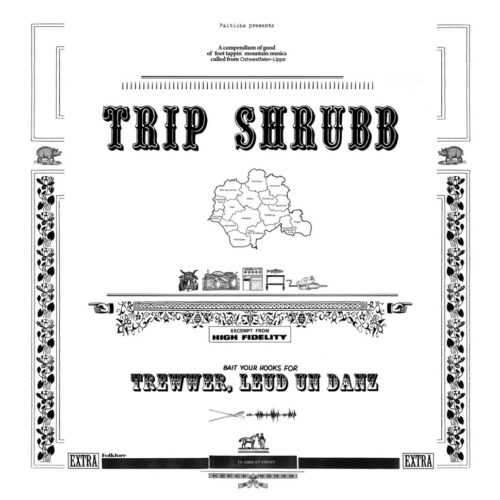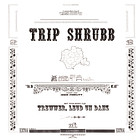Jan Jelinek knows how to run a label. Since the founding of Faitiche in 2008, the imprint has not only been characterised by a coherent aesthetic in visual terms, but also repeatedly served as a platform for releases that sometimes pursue similar musical projects in conceptual terms. A common thread is that of anthropology: Andrew Pekler’s »Tristes Tropiques« already borrowed its title and basic ideas from the structuralist Claude Lévi-Strauss, and Jelinek’s radio play, »The Raw and the Cooked,« recently released as an LP on Faitiche, took its cues from the same writer. The underlying question – what does the transformation of acoustic sounds with electronic means actually do to the source material? – is now taken up again by »Trewwer, Leud Un Danz«. It is a compilation of 13 of the 84 remixes that the artist Michael Beckett aka KPT.Michi.Gan had already released in 2013 as a triple cassette under the name Trip Shrubb. Beckett worked his way through the pieces of the »Anthology of American Folk Music« on Folkways from 1952, but hardly anything of the blues, folk and country pieces on it are still recognisable; even their titles have been written down in the endangered Lippisch-Platt dialect from North Rhine-Westphalia. All this makes this album one that, like so many Faitiche releases, may not be intellectually comprehensible without additional information, and yet it is immediately relatable on an emotional level. Beckett’s approach is perhaps comparable to that of hauntology artists such as Leyland James Kirby or William Basinski, but his murky, gloomy loops do not exude any nostalgia and it is difficult to understand exactly what kind of pieces produced the source material. Occasionally, percussion elements become audible, but basically the pieces on »Trewwer, Leud Un Danz« sound more like dub abstractions or call to mind the circular ambient like that of Celer – only in a comparatively faster and more compressed form. Through this work of abstraction, Beckett robs these musical storytelling forms of their content and radically breaks with their narrative structures. The result is reminiscent of Jelinek’s »Loop-finding-jazz-records«, but is more moody, less animate and all the more disquieting.
Nick León
A Tropical Entropy
TraTraTrax



